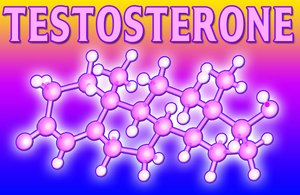
Male sexual health revolves around various intricate aspects, and erectile dysfunction (ED) occupies a prime spot in its spectrum. Decoding the science behind soft erections or erectile dysfunction involves understanding both physiological and psychological aspects. Let us delve into the labyrinth of male potency and explore how stiffness ebbs away, leading to ED.
The Anatomy of an Erection
Understanding ED begins with comprehending the erection mechanics. An erection is a complex process involving the central nervous system, hormones, emotions, blood vessels, and muscles. During sexual stimulation, signals from the brain promote the release of nitric oxide, a chemical messenger. This catalyzes a series of chemical reactions leading to the dilation of blood vessels, ushering more blood into the penile corpus cavernosa (spongy erectile tissues). Consequently, the penis swells, resulting in an erection.
Causes of Erectile Dysfunction
Now that we've established the basics of an erection, let's take a closer look at the reasons behind erectile dysfunction. ED tends to occur when there is a disruption in the erection process mentioned above. Various factors can lead to this discrepancy, split into physical and psychological causes. Physical factors include heart diseases, diabetes, hypertension, obesity, and more. On the other hand, psychological aspects encompass stress, anxiety, depression, and relationship issues.
Erectile Dysfunction: Beyond the Physical
While physical health issues predominantly contribute to ED, psychological factors aren't to be overlooked. Fear of sexual failure, stress, anxiety, and feelings of inadequacy can disrupt the brain’s signals for achieving and maintaining an erection. Experts believe that the mind-body connection plays a crucial role in erectile functioning, emphasizing the importance of mental health in sexual well-being.
Dealing with Erectile Dysfunction
The first step in managing ED is recognizing and accepting the issue without guilt or embarrassment. Seeking professional help is essential in navigating this path effectively. Doctors initiate the treatment based on the root cause. Lifestyle changes like improved diet, regular exercise, moderated alcohol consumption, and cessation of smoking constitute the first line of treatment. Psychotherapy helps tackle mental stressors, while pharmaceutical aids like PDE-5 inhibitors address the physical aspects.
Erectile Dysfunction: A Growing Concern
Erectile dysfunction, despite being a common occurrence, often remains unaddressed due to associated stigma and embarrassment. It is, however, gaining recognition in the public health arena as a significant concern due to its potential of diminishing overall men's health and quality of life. A proactive attitude towards understanding the issue and prioritizing male sexual health is the way forward in addressing erectile dysfunction effectively.
In conclusion, soft erections or erectile dysfunction is a complex issue encompassing various factors. However, addressing and managing erectile dysfunction is feasible with acknowledgment, professional help, and informed lifestyle choices.
Contact Us Today For A Free Consultation

- Demystifying the Enigma of Soft Erections: A Comprehensive Guide [Last Updated On: February 25th, 2025] [Originally Added On: February 25th, 2025]
- Masculinity Reenvisioned: Soft Erections as an Emblem of Strength [Last Updated On: February 27th, 2025] [Originally Added On: February 27th, 2025]
Word Count: 443





















